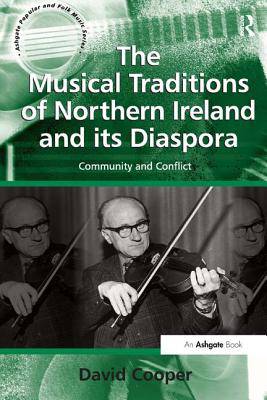
- Afhalen na 1 uur in een winkel met voorraad
- Gratis thuislevering in België vanaf € 30
- Ruim aanbod met 7 miljoen producten
- Afhalen na 1 uur in een winkel met voorraad
- Gratis thuislevering in België vanaf € 30
- Ruim aanbod met 7 miljoen producten
Zoeken
€ 102,45
+ 204 punten
Uitvoering
Omschrijving
Northern Ireland remains a divided community in which traditional culture, in all its manifestations, is widely understood as a marker of religious affiliation and ethnic identity. Since the outbreak of the most recent 'troubles' around 1968, the borders between the communities have often been marked by music. With the increasing espousal of a discrete Ulster Scots tradition since the signing of the Belfast (or 'Good Friday') Agreement in 1998, the characteristics of the traditional music performed in Northern Ireland, and the place of Protestant musicians within popular Irish culture, clearly require a more thoroughgoing analysis. David Cooper's book provides such analysis, as well as ethnographic and ethnomusicological studies of a group of traditional musicians from County Antrim. In particular, the book offers a consideration of the cultural dynamics of Northern Ireland with respect to traditional music.
Specificaties
Betrokkenen
- Auteur(s):
- Uitgeverij:
Inhoud
- Aantal bladzijden:
- 202
- Taal:
- Engels
- Reeks:
Eigenschappen
- Productcode (EAN):
- 9781409419204
- Verschijningsdatum:
- 28/07/2010
- Uitvoering:
- Paperback
- Formaat:
- Trade paperback (VS)
- Afmetingen:
- 156 mm x 234 mm
- Gewicht:
- 290 g

Alleen bij Standaard Boekhandel
+ 204 punten op je klantenkaart van Standaard Boekhandel
Beoordelingen
We publiceren alleen reviews die voldoen aan de voorwaarden voor reviews. Bekijk onze voorwaarden voor reviews.








